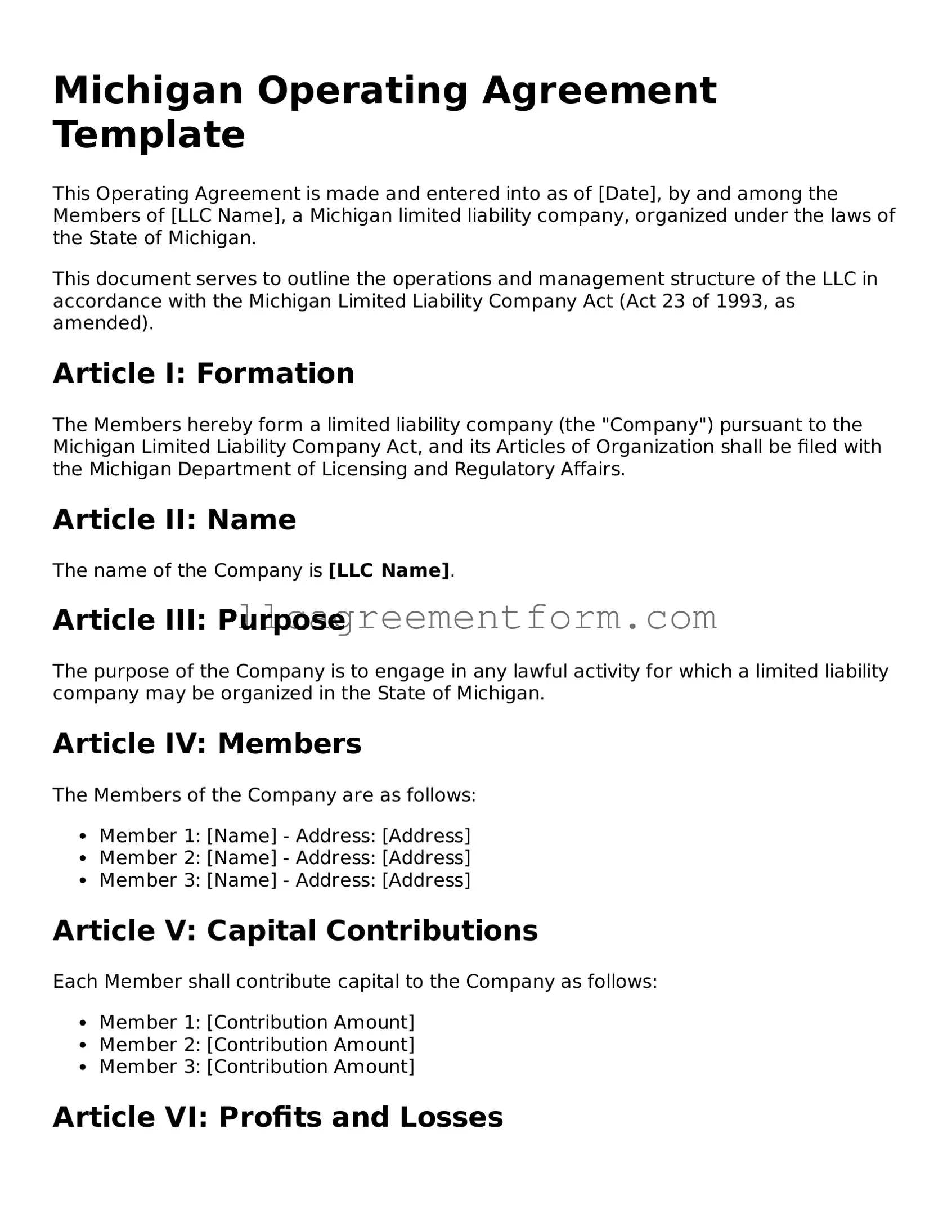Free Operating Agreement Document for Michigan
The Michigan Operating Agreement form is a legal document that outlines the management structure and operating procedures of a limited liability company (LLC) in Michigan. This form serves as a foundational tool for members to define their roles, responsibilities, and the distribution of profits and losses. To create a clear and effective framework for your LLC, consider filling out the form by clicking the button below.
Get Operating Agreement Now

Free Operating Agreement Document for Michigan
Get Operating Agreement Now
Don’t stop halfway through your form
Finish Operating Agreement online with fast editing and easy download.
Get Operating Agreement Now
or
▼ PDF
